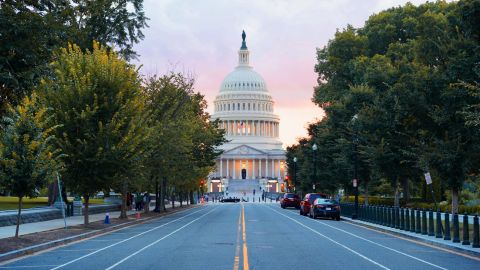Advocacy spotlight: William T. Booth II, veteran, scientist and advocate
This spring, members of the ASBMB are encouraging the U.S. Senate to advance the Supporting Veterans in STEM Careers Act (S. 153), which directs the National Science Foundation to do more for veterans interested in pursuing education and training for STEM careers.
 William T. Booth
William T. Booth
To learn more about the needs and experiences of veterans, ASBMB’s policy analyst, André Porter, interviewed society member William T. Booth, a postdoctoral researcher who spent more than eight years in the U.S. Army and National Guard.
Booth’s research at the Wake Forest School of Medicine physiology and pharmacology department is focused on elucidating protein structures to help predict their functions and design therapies to treat illnesses.
In 2018, Booth participated in the ASBMB’s annual Capitol Hill Day, during which he met with lawmakers to advocate for robust support for scientific research.
What inspired you to pursue a career in science, and how has your military service influenced your career path?
For as long as I can remember, I have been interested in the sciences. I joined the military to pay for school, with the intent of going into the army to work toward a career in STEM. My Armed Services Vocational Aptitude Battery General Technical score, however, was not good enough to go into a medical career, so I became a mechanic and a paratrooper. Surprisingly, working on trucks was really rewarding. You learn a lot about courage, patience, controlling frustrations, troubleshooting, and persistence toward mission accomplishments. These are all traits I never realized would be beneficial to me in my STEM career and in life.
What is a resource that you feel would help other veterans pursue careers in STEM, and how can your colleagues help?
As I advance in my career, the term “funding” is a word I hear daily. Obtaining funding and resources is absolutely essential for the progression of research and scientific discovery. In order for veterans to continue to pursue careers in STEM fields, at the baccalaureate, pre- and postdoctoral, and investigator levels, financial incentives for quality research and training is essential. Soldiers volunteer to fight for our country and its interests often as adolescents and young adults. Let us reward them for their courage to fight to keep our country safe by supporting legislation and policies that will make a concerted effort to broaden their inclusion in STEM.
Join Booth and other ASBMB members in this initiative by contacting your senators and urging them to support S. 153. We’ve drafted the letters. All you need to do is enter your information, personalize as you see fit, and submit.
Enjoy reading ASBMB Today?
Become a member to receive the print edition four times a year and the digital edition monthly.
Learn moreGet the latest from ASBMB Today
Enter your email address, and we’ll send you a weekly email with recent articles, interviews and more.
Latest in Policy
Policy highlights or most popular articles

Councilors advocate for science on Capitol Hill
ASBMB Councilors meet with their elected officials to advocate for basic scientific research funding and training the next generation of scientists.

Hope for a cure hangs on research
Amid drastic proposed cuts to biomedical research, rare disease families like Hailey Adkisson’s fight for survival and hope. Without funding, science can’t “catch up” to help the patients who need it most.

Supporting science through advocacy and community building
ASBMB calls on scientists to take action as funding cuts and policy shifts threaten the U.S. research enterprise, emphasizing the power of community advocacy and persistence in protecting the future of science.

Seven steps to advocating in your home state
Find out how to schedule, prepare for and conduct a productive district office meeting to communicate the importance of fundamental scientific research funding to your representatives.

ASBMB members call for funding and agency support amidst uncertainty
In 60 meetings on Capitol Hill, scientists urge legislators to reaffirm support for scientific innovation

Embrace your neurodivergence and flourish in college
This guide offers practical advice on setting yourself up for success — learn how to leverage campus resources, work with professors and embrace your strengths.
